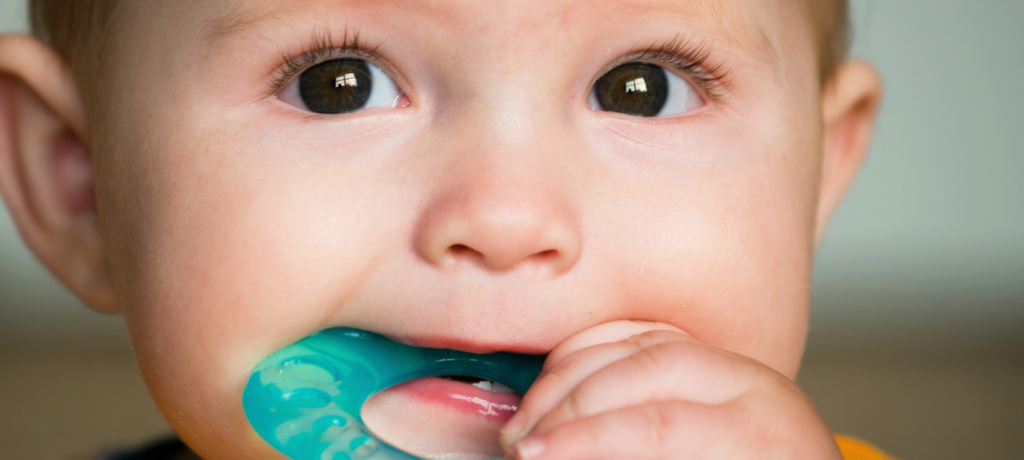Information Library
Start Reading

Have you ever wondered whether you’re doing all you can to promote your children’s oral health?
Don’t fall victim to these five common mistakes that parents make regarding their child’s oral care:
Many parents assume that baby teeth don’t matter because they will fall out. The result is often not dedicating as much time or attention to their child’s oral hygiene. But baby teeth play a key role in your child’s health and development. They hold space in the mouth for the permanent teeth that are growing under the gums.
When a baby tooth is lost prematurely, the permanent teeth can drift into the empty space, making it harder for other adult teeth to emerge in the correct place. The outcome is often misaligned or crooked teeth that require orthodontic treatment.
Baby teeth are also necessary for chewing and speaking. An infected baby tooth can be very painful. It may cause swollen gums and throbbing pain, especially when your child chews. If left untreated for too long, an infected tooth can spread to the surrounding teeth and bones. As you can see, children’s oral health is very important to their overall happiness and wellbeing!
While it may make bedtime easier in the short run, putting your child to bed with a sippy cup or feeding bottle elevates the sugar levels in the mouth – and keeps it up for a long time. Tooth decay in infants and toddlers is referred to as baby bottle tooth decay. Falling asleep while drinking milk or juice often leads to cavities. This is because the sugary liquid pools around the teeth, providing a place for bacteria to grow. It’s best to get your child in the habit of finishing any drink before bed.
Most children don’t have the motor skills necessary for proper brushing until they are eight years old. And even eight-year-olds are more likely to brush correctly if their parent is in the room with them. Take the time to brush and then teach your child the proper techniques to prevent cavities.
Brushing should take at least two minutes and cover all the surfaces of the teeth. One way to help your child build the habit have brushing-teeth sessions in front of the mirror. This enables your little one to watch, and then practice brushing independently. As children get older, you can step away a bit and inspect the brushing.
While most parents are aware that soda should be a rare treat, did you know that so-called “healthy” juices are packed full of sugar and citric acid? Fruit juices deliver a much higher concentration of sugar as compared to a normal serving of fruit. The sugars that remain in the mouth after drinking juice feed harmful bacteria and trigger more bacterial growth. The citric acid in fruit juices erodes the tooth enamel, which further weakens the teeth. This combination puts the teeth at a much greater risk for cavity development.
 It’s easy to put off your child’s bi-annual dental visit, but these appointments are an important part of your child’s oral health and development. Your pediatric dentist will provide a professional cleaning to remove plaque from the teeth, leaving them shiny and clean. Even if you are diligent about brushing twice a day, a professional cleaning is needed because only a dentist can remove all plaque buildup.
It’s easy to put off your child’s bi-annual dental visit, but these appointments are an important part of your child’s oral health and development. Your pediatric dentist will provide a professional cleaning to remove plaque from the teeth, leaving them shiny and clean. Even if you are diligent about brushing twice a day, a professional cleaning is needed because only a dentist can remove all plaque buildup.
These appointments also make it possible for the dentist to check your child’s teeth and oral development. If a cavity is found, in many cases the dentist can apply a fluoride gel or varnish, which does two things:
By making regular appointments at the dentist, you’ll help your child to avoid developing painful conditions while promoting optimal health in their teeth and gums.
Thanks to a $1.53 million grant from the U.S. Health Resources and Services Administration, Penn Dental Medicine has announced its First Five program focusing on children’s oral health under age five. Penn is one of only 11 dental schools nationwide to receive the federal grant, which includes a curriculum with a holistic approach to pediatric dentistry.
Many rural and urban areas of the country are experiencing a shortage of pediatric dentists. Pediatric care often falls to general dentists in these cases. The First Five program allows Penn Dental Medicine to equip all our student dentists with clinical experience working with children under the age of five. For parents looking for affordable care, this means that more slots are available for pediatric dentistry appointments. All dental visits are overseen by our expert pediatric dental faculty members.
If you are seeking a reputable provider of pediatric dentistry, we encourage you to take advantage of this opportunity to access reasonably-priced care at one of the nation’s leading institutions. To schedule an appointment for your child, please give us a call at 215-898-8965.